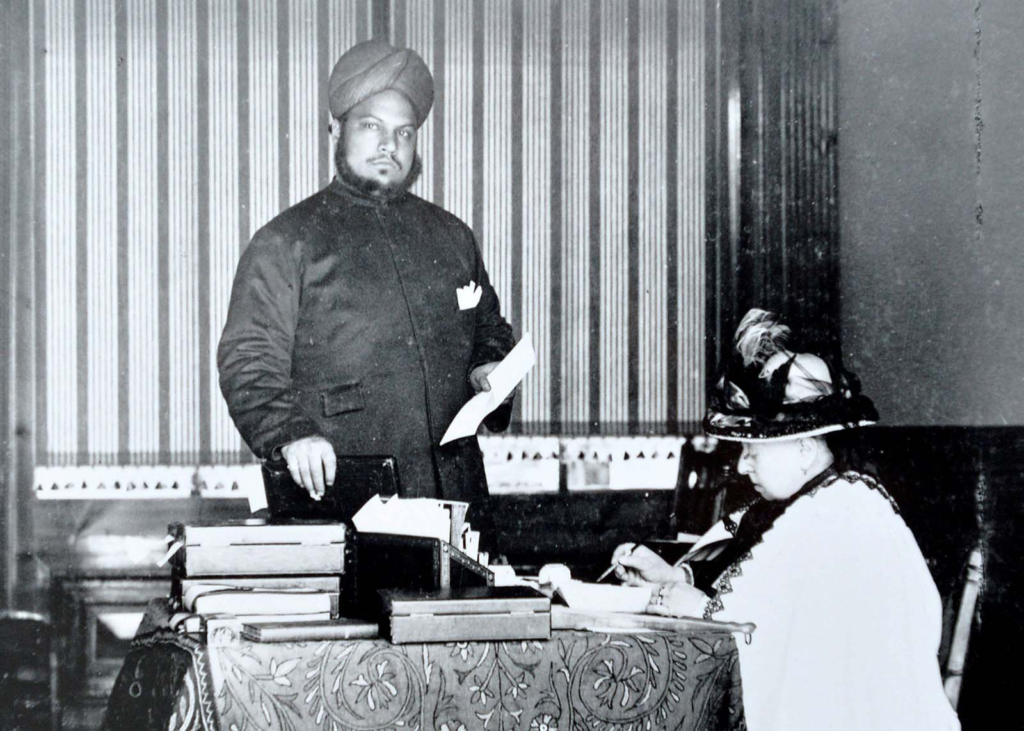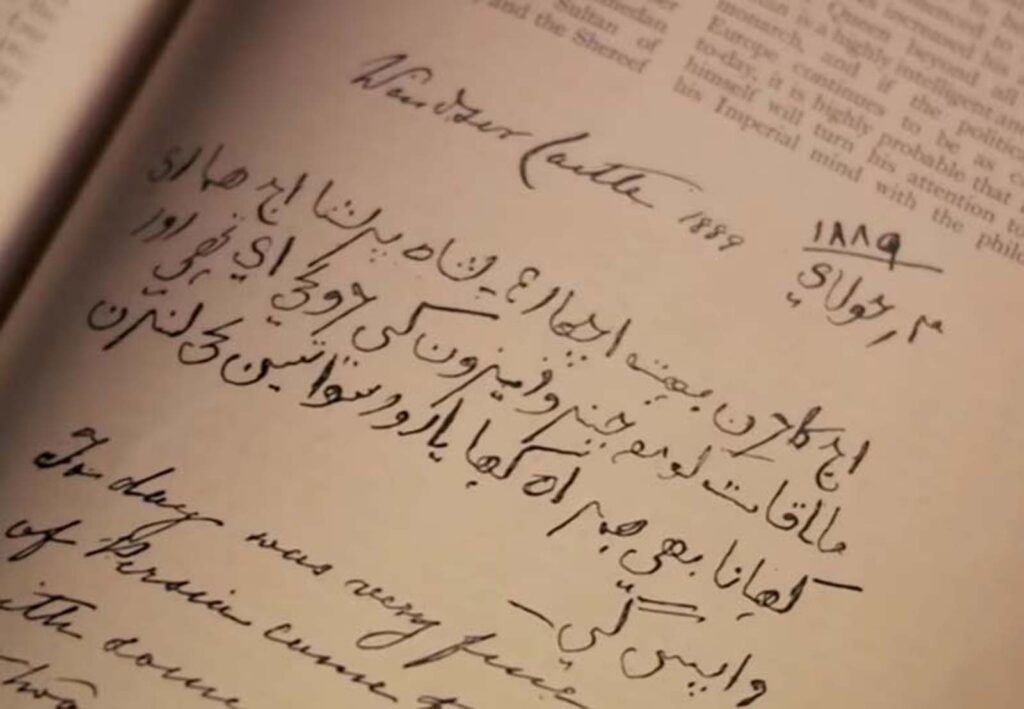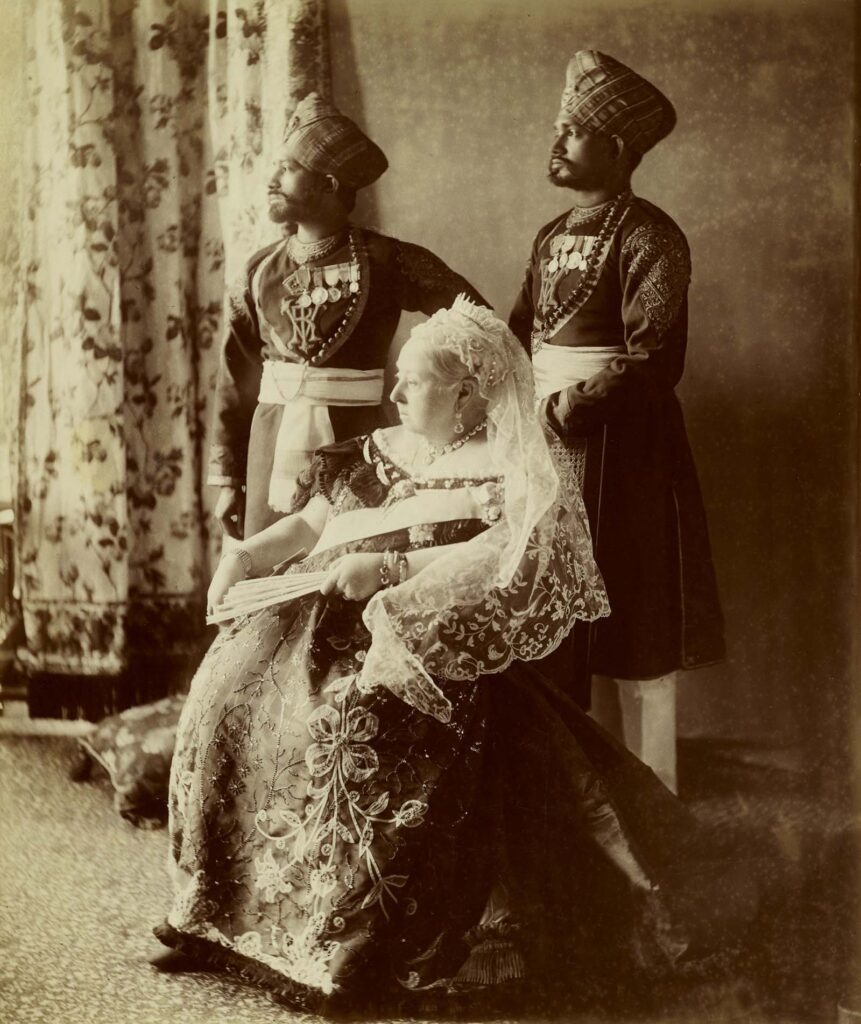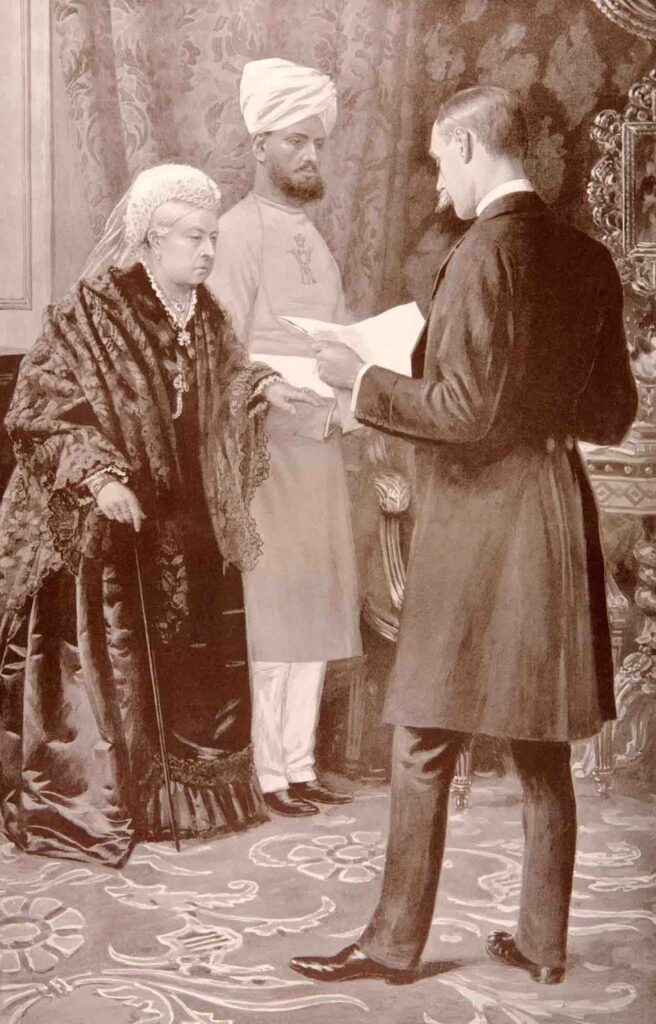
The close relationship between Queen Victoria and her young Indian attendant Abdul Karim was deemed controversial and scandalous by the royal court. After the Queen passed away, the family evicted Karim from the home the queen had given him and deported him back to India.

Shrabani Basu, a renowned UK-based journalist notices a unique detail while touring Victoria’s Isle of Wight summer home in 2003. She saw a brown man standing next to Queen Victoria with a posture of a nobleman. She noticed that he is holding a book or important paper rather than a serving tray. This intrigued her and eventually led her to the details of Karim and Queen Victoria’s scandalous yet eccentric friendship. This duo from the royal court is removed thoroughly after her demise.
An assistant clerk at Agra central Jail, Abdul Karim was barely 24 years old. When he left Agra in India for England to wait at tables during Queen Victoria’s Golden Jubilee in the 1880s. Karim, was one of two servants selected and presented to Victoria as “a gift from India” on the occasion of her 50th year on the throne. Buksh(the other servant) remained in the Queen’s service. But only as a khidmatgar or table servant, until his death at Windsor in 1899.
Within a year of his arrival in the palace. He earned the Queen’s trust to become her personal attendant and her teacher (or munshi (meaning, teacher) as she is said to have addressed him). Giving her lessons in Urdu and Indian affairs. However, it was a relationship that would lead to a near revolt in the royal family.

Queen’s fondness
Queen Victoria’s first impression of Karim was recorded in her diaries. Where she deemed him “tall with a fine serious countenance“. After their jubilee duties concluded, Karim and Buksh traveled with the queen to her summer home on the Isle of Wight. There, Karim distinguished himself by surprising the sovereign with one of his favorite recipes. Using spices he had brought from Agra, Karim cooked a chicken curry with dal and pilau. According to Victoria biographer A.N. Wilson, the queen declared the dish “excellent” and added it to her regular menu rotation.
Eventually, the royal court decides that Victoria must break with Abdul. If not, they all will resign and certify Victoria as insane. When Victoria is told, she angrily summons the entire household and demands that anyone who wants to resign step forward. When no-one does, she says she has decided against making Abdul a knight. She will instead include him in her next honors list as a Commander of the Royal Victorian Order.
When Victoria falls ill, she urges Abdul to return to India while she can still protect him and warns him that the court will turn on him after her death. Abdul insists that he will stay until her death. Upon her death on January 22, 1901, Victoria’s children worked swiftly to evict their mother’s favorite adviser. Edward VII sent guards into the cottage Karim shared with his wife, seizing all letters from the queen and burning them on the spot. Abdul’s wife saves the locket Victoria gave him.

Fall of such unique relationship
They instructed Karim to return to India immediately, without fanfare or farewell. Karim subsequently lived quietly near Agra. On the estate that Victoria had arranged for him, until his death at the age of 46. Miraculously, a surviving member of Karim’s family contacted Basu. And directed her to a relative who had held onto Karim’s existing diaries. Which she incorporated into her book Victoria & Abdul: The True Story of the Queen’s Closest Confidant, the basis for the Stephen Frears drama starring Judi Dench and Ali Fazal.
“This is the journal of my life at the court of Queen Victoria from the Golden Jubilee of 1887 to the Diamond Jubilee of 1897,” wrote Karim. “I’ve been but a sojourner in a strange land and among a strange people. . . . While I record my life I cannot but call to mind the many honours. Which have fallen to my lot and all through the great goodness of Her Majesty. I pray to the Almighty for the richest blessings to be showered down on our good Queen Empress.”

